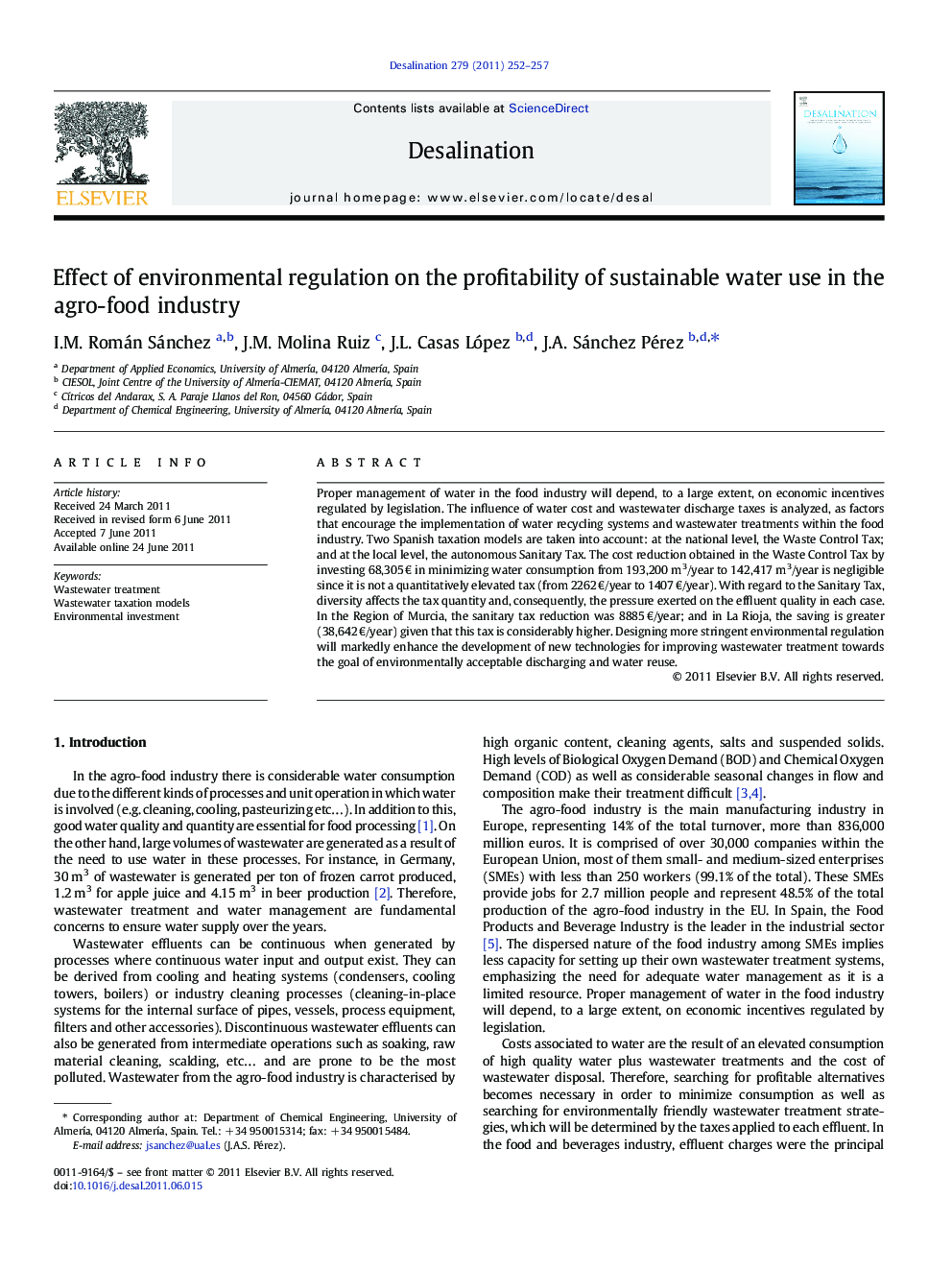| Article ID | Journal | Published Year | Pages | File Type |
|---|---|---|---|---|
| 624908 | Desalination | 2011 | 6 Pages |
Proper management of water in the food industry will depend, to a large extent, on economic incentives regulated by legislation. The influence of water cost and wastewater discharge taxes is analyzed, as factors that encourage the implementation of water recycling systems and wastewater treatments within the food industry. Two Spanish taxation models are taken into account: at the national level, the Waste Control Tax; and at the local level, the autonomous Sanitary Tax. The cost reduction obtained in the Waste Control Tax by investing 68,305 € in minimizing water consumption from 193,200 m3/year to 142,417 m3/year is negligible since it is not a quantitatively elevated tax (from 2262 €/year to 1407 €/year). With regard to the Sanitary Tax, diversity affects the tax quantity and, consequently, the pressure exerted on the effluent quality in each case. In the Region of Murcia, the sanitary tax reduction was 8885 €/year; and in La Rioja, the saving is greater (38,642 €/year) given that this tax is considerably higher. Designing more stringent environmental regulation will markedly enhance the development of new technologies for improving wastewater treatment towards the goal of environmentally acceptable discharging and water reuse.
Research highlights► We study profitability of investing in minimizing water consumption in the industry. ► We compare how two Spanish wastewater taxes encourage rational management of water. ► Tax design should consider the true environmental cost of discharge. ► Stringent environmental regulation will promote new wastewater treatment technology.
